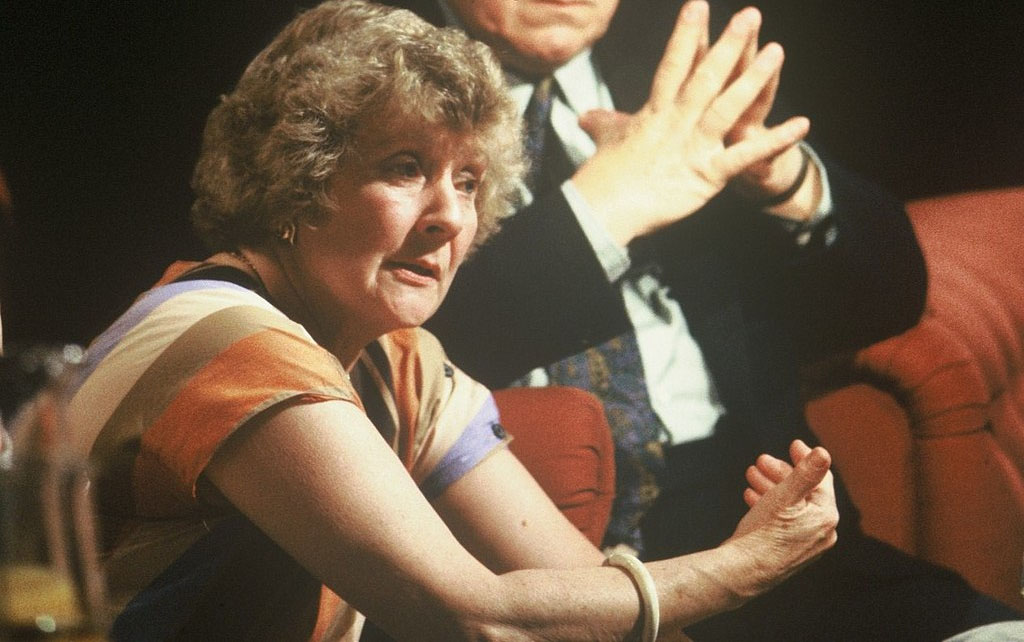A while back I was asked to write a list of the ten political figures who were most important to me during my lifetime. Like most of these lists I pondered long and hard about just who would make the cut, but one of the first names on the list was Shirley Williams*.
I came into active politics during the 1970s but I had watched political discussion on TV for as long as I could understand that it mattered. Shirley Williams caught my attention early because she sounded intelligent, passionate and convincing but also because she looked ordinary. One of the papers had unkindly described her as “the tousled housewife” – a misogynist put down, but could have been one of our teachers – and she would have been good (years later her students from Harvard spoke highly of her). She probably didn’t smile enough but you could believe her. When Ted Heath was evicted from number 10, Harold Wilson’s cabinet contained two (yes 2) women – Barbara Castle (another of my ten) and Shirley Williams who was given the prices and consumer protection portfolio and later, as the only woman in Jim Callaghan’s Cabinet, Education and Science.
I always felt Shirley Williams deserved better – she was far more talented than many of the depressing grey suits who were promoted over her, but as Education Secretary she was inspiring, not because of what she achieved – it was hard for any Labour minister to achieve a great deal in a government with no majority, but because she clearly believed in education as the force of personal liberation, betterment and social mobility that it damn well ought to be.
Fast forward to my university days and the split in Labour. Shirley Williams was a regular drop in at the University of Essex where she had academic friends who leaned toward social democracy. It was an awful time in and for the Labour Party not unlike the past few years and I was wrong about an awful lot of things – youthful idealism and just plain stupidity in equal measure. I was deeply disappointed when Shirley Williams got involved with the others in the ‘gang of four’. Roy Jenkins, I could forgive because of the things he did as Home Secretary, the other two were dreadful and many of the Labour MPs who followed them were a very mixed bag, as many had deselection difficulties because they were lazy as did because of their politics. These days we almost take it for granted people will be 'good constituency MPs' - it wasn't always true.
After the formation of the SDP she came down to the campus to do an open meeting. When you are young you are stupid and arrogant enough to believe you can do anything, so I was up for interviewing Shirley Williams for the campus radio station. Shirley, thoroughly polite and decent of course, completely shredded my hopeless attempts to take her on, chewed my up and would have spat me out if she had been less well brought up. It was an early and valuable lesson, only partially learned. Off mike after the interview she said that she could see she where I was coming from, that I was angry with her and she appreciated why. I told her she was right because she had been one of my heroes and I was sad she had left the party. “They left me”, she said.
I bumped into her a couple of times at Westminster, but only in passing – a great pity I was never able to recount the encounter and say thank you.
The political choices she made meant she spent the rest of her political life on the fringes, never having the impact in Government that she might have had by remaining with Labour. Ironically, she was far more radical in terms of social, economic and international policy that some who stuck with Labour. In my view it was ultimately a flawed strategic judgement, though it’s worth remembering how close the SDP came to breaking the two major parties. The point of being in politics is to make a difference and I can’t help but think she could have done so much more. However there is a point for most people in politics at which you ask if this is who you really are and where you want to be? If you are not true to yourself you will carry that regret to your grave. I don’t imagine Shirley Williams had many regrets.
I disagreed with her on much, of course, but I have continued to admire her over the years and was always happy when she popped up on TV. Shirley always had something to say that made you think. Her passing is a reminder of another age – the ONLY woman around that cabinet table. It’s really not so long ago.
RIP.
* The others were Barak Obama, Martin Luther King, Nelson Mandela, Muhammad Ali, Tony Blair, Barbara Castle, Harriet Harman, Mikhail Gorbachev and Robin Cook, but that’s for another day.



